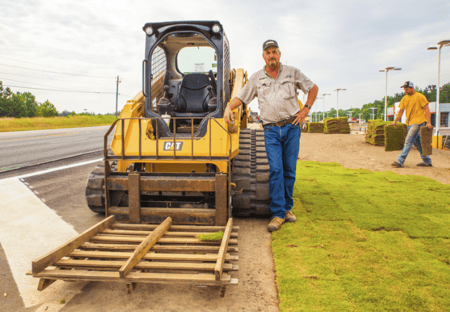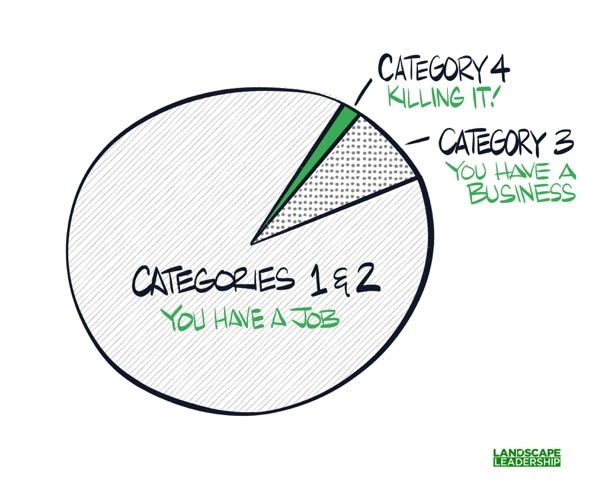Topics: Branding And Positioning Growth
What's Killing Your Net Profitability (The Problem Might Surprise You)
 Author: Chris Heiler
Author: Chris Heiler
 I know many of you personally. I know that you work your asses off everyday trying to succeed in your business.
I know many of you personally. I know that you work your asses off everyday trying to succeed in your business.
And let's be honest: You're doing this in an industry that doesn't get the respect it deserves. You're Just Another Landscaper to many.
It is not uncommon for me to get a strange, "that's beneath us" look when other marketing professionals learn that we only work with lawn and landscape industry companies here at Landscape Leadership. It is not a sexy niche, my friends.
I just laugh because I know what most people don't, and that is this: You can make some serious bank working in this industry.
I know many of you who have been fortunate to build a business worth millions of dollars that has provided you with a terrific lifestyle and wealth to pass on to future generations.
Most of you aren't there yet.
But you can be.
A job vs. a business
It takes courage to own your own business. It takes tremendous risk. Many people are depending on you. With that risk comes the opportunity for great reward in the form of profits (above and beyond a fair market salary).
Here is a fairly sobering observation for you: If you are barely paying yourself a fair salary and showing a minimal (if any) net profit after your salary, then you have a job, not a business.
Businesses make a profit. This profit allows you to reinvest in the growth of your company (i.e.- scale). It allows you, as the owner, to fund the lifestyle you desire.
I think it is safe to group business owners in our industry into four distinct categories as it relates to their company's profitability:
- You are barely paying yourself a salary, with no profit [Job]
- You are drawing a fair salary, with a small, inconsistent profit [Job]
- You are drawing a fair salary, with industry average profits [Business]
- You are drawing a fair salary, with profits well above the industry average [Business]
My guess is that 80% of companies in the lawn and landscape industry are currently category 1 and 2 companies. The remaining 20% are category 3 and 4 (true businesses), with less than 5% of companies generating a profit well above industry averages. (Feel free to challenge me on this)
In which category are you currently?

A road to profitability
The problem is not that your company is not lean enough. In my opinion, in many cases, "lean" is simply justification for inadequate and poor staffing decisions.
The problem is not that you are not selling enough. Many owners in this industry are sales superstars. Adding to your top line is not the issue. Hiring to keep up with this sell, sell, sell, growth-at-all-cost approach is a topic for another day :-)
The problem many of you are suffering from goes deeper: You are not differentiated enough.
You don't have a profit problem, you have a positioning problem. An anemic profit margin is a symptom of poor positioning.
Being an undifferentiated service provider means you are easily replaceable by Joe Blow Mowing down the street. Now you're playing the commodity game against big league ballers like BrightView and TruGreen with the ripe rewards of shit profit (sorry, I couldn't think of anything more clever than that).
Wrap up
I know you are working your ass off. And I admire you for that. Your courage as a business owner needs to be rewarded in the form of a balanced, healthy lifestyle and a steady accumulation of wealth.
That's why we're in this game. That's why our mission at Landscape Leadership is to help you make more money.
That starts by working on your bottomline and net profitability so more dollars go directly into your wallet.
If this idea of beefing up your bottomline appeals to you, then request a meeting with us right now. We'll take you through our Total Marketing Review as a first step towards improving your company's profitability.
Want to receive more candid insight like this? Then subscribe to our blog. We'll deliver new articles to your inbox once a week. Just add your email below.
image source: T Lake Environmental Services




